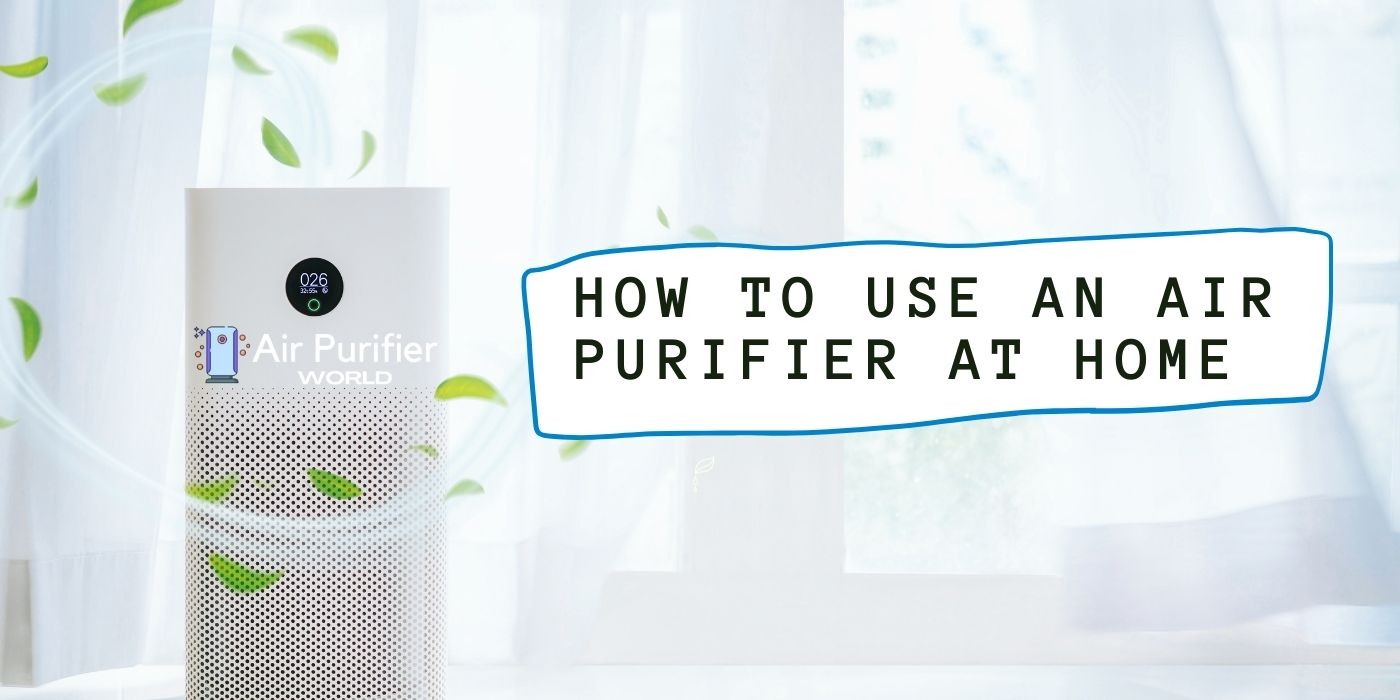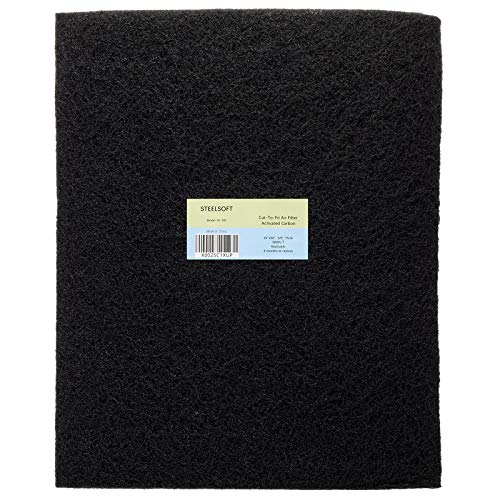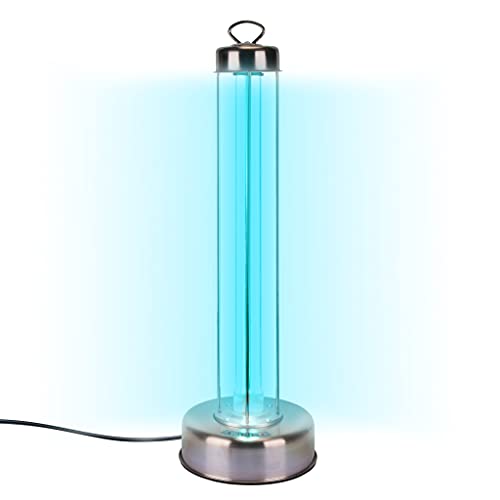Do you suffer from allergies or asthma? If so, you know how important it is to have an air purifier in your home. Not only can an air purifier help you breathe easier, but it can also improve the quality of the air in your home. In this guide, we will discuss the different types of air purifiers and how to use them properly. We will also provide tips on choosing the right air purifier for your needs.
An air purifier is a device that cleans the air in your home. It removes dust, pollen, smoke, and other pollutants from the air. There are several different types of air purifiers available on the market, including mechanical filters, activated carbon filters, ozone generators, electronic air purifiers, and ultraviolet germicidal irradiation (UVGI) systems.
What is a HEPA filter?
A mechanical filter is the most common type of air purifier. It contains a paper or cloth filter that captures pollutants as they pass through the device. The filters must be replaced regularly in order to keep the air purifier working properly.
What is an activated carbon filter?
An activated carbon filter is another common type of air purifier. This type of filter uses charcoal to remove pollutants from the air. Activated carbon filters are especially effective at removing odors and chemicals from the air.
What is an ozone generator?
An ozone generator is a type of air purifier that produces ozone, a gas that can remove pollutants from the air. Ozone generators are not safe to use around people or pets, so they should only be used when no one is home.
What is an electronic air purifier?
An electronic air purifier uses an electrical charge to remove pollutants from the air. These devices are often used in commercial settings, such as office buildings and hospitals.
What is the ultraviolet germicidal irradiation (UVGI) system?
A UVGI system is a type of air purifier that uses ultraviolet light to kill bacteria and viruses. These systems are often used in public places, such as schools and daycare centers.
When choosing an air purifier, it is important to consider the specific needs of your home. For example, if you have allergies, you will want to choose a device that contains a HEPA filter. HEPA filters are able to remove up to 99% of airborne particles, making them an effective tool for improving indoor air quality. If you have asthma or smoke cigarettes, you may want to consider an air purifier with an activated carbon filter, which can help to remove harmful chemicals and odors from the air.
It is important to remember that no single type of air purifier can meet all your needs. For example, if you have allergies and asthma, you may need to use two or more different types of air purifiers in order to get the best results.
When using an air purifier, it is important to follow the manufacturer’s instructions carefully. Be sure to change the filters regularly and keep the device clean. Additionally, be sure to stay away from ozone generators unless they are specifically designed for use in a home setting. Ozone generators can be dangerous if used improperly.
Can air purifiers capture the coronavirus?
Yes, air purifiers can capture the coronavirus. HEPA filters are able to remove up to 99% of airborne particles, including the coronavirus. UVGI systems are also effective at killing bacteria and viruses, including the coronavirus. However, it is important to remember that no single type of air purifier can meet all your needs.
While an air purifier cannot completely eliminate all allergens or pollutants from your home, it can significantly reduce them. If you or a family member suffers from allergies, asthma, or other respiratory conditions, an air purifier may be a helpful addition to your home.
Be sure to consult with your doctor before purchasing an air purifier. Additionally, take the time to research different types of air purifiers and find one that best meets your needs. By following these tips, you can improve the indoor air quality in your home and create a healthier environment for yourself and your family.
How do I know if my air purifier is working?
The easiest way to tell if your air purifier is working is to look at the filter. Most filters will have a light that indicates when they need to be replaced. If the light is, then the filter is still working correctly. Additionally, many air purifiers have indicator lights that will tell you when the device is turned on and how much power it is using.
If your air purifier has a filter, be sure to replace it regularly. If the filter is not replaced, the air purifier will not work properly. Additionally, if the device is not cleaned regularly, it can become clogged with dust and other allergens, which will also reduce its effectiveness.
What should I look for in an air purifier?
CADR (clean-air delivery rate) rating. The higher the CADR rating, the more efficient the device is at removing pollutants from the air.
Size. Make sure to choose an air purifier that is the appropriate size for your needs. If you choose a unit that is too small, it will not be effective at purifying your air. Conversely, if you choose a unit that is too large, it will use more energy and may be louder than necessary.
Airflow rate. The airflow rate indicates how much air the device can circulate in an hour. A higher airflow rate means that more polluted air will be filtered in a shorter period of time.
Filtration system. Choose an air purifier with a filtration system that meets your specific needs. For example, if you have allergies, choose a unit with a HEPA filter. If you are concerned about pet dander or smoke, choose a unit with an activated carbon filter.
Noise level. Some air purifiers are louder than others. Choose one that has a low noise level if you want to use it in your bedroom at night.
Warranty. Many air purifiers come with a warranty from the manufacturer. Be sure to read the terms of the warranty before purchasing an air purifier.
No single type of air purifier can meet all your needs, so it is important to research different types before making a purchase. By considering the specific needs of your home and family, you can find an air purifier that best meets your needs. Additionally, be sure to keep the device clean and change the filters regularly to ensure the best results. By following these tips, you can improve the indoor air quality in your home and create a healthier environment for yourself and your family.
How often should I use my air purifier?
The frequency with which you use your air purifier will depend on the specific needs of your home. For example, if you have allergies, you may want to use it more often. If you live in an area with a lot of pollution, you may want to use it less often. Additionally, be sure to follow the manufacturer’s instructions carefully and change the filters regularly.
An air purifier is a great way to improve the indoor air quality in your home. If you or a family member suffers from allergies, asthma, or other respiratory conditions, an air purifier may be a helpful addition to your home. Be sure to consult with your doctor before purchasing an air purifier. Additionally, take the time to research different types of air purifiers and find one that best meets your needs. By following these tips, you can improve the indoor air quality in your home and create a healthier environment for yourself and your family.
There are many reasons to buy an air purifier for your home. One of the most important is that air purifiers can improve your health. They can help reduce allergies, asthma symptoms, and other respiratory problems. Air purifiers can also improve the air quality in your home, which is especially important if you have pets or small children. In this blog post, we will discuss about reasons why you should buy an air purifier for your home!
If you suffer from allergies, asthma, or any other respiratory condition, an air purifier can help improve your symptoms. Air purifiers work by removing allergens and other particles from the air, making it easier for you to breathe. If you have pets or small children, an air purifier can also help to reduce pet dander and dust in your home.
Air purifiers can also improve the air quality in your home overall. In addition to removing allergens and pollutants, air purifiers can also remove smoke, odors, and VOCs (volatile organic compounds). This can create a healthier environment for you and your family.
There are many different types of air purifiers on the market today. Some air purifiers are designed for specific needs, such as allergies or asthma. Others are designed to work in larger spaces, such as homes or offices. And still others are portable air purifiers that you can take with you wherever you go.
Is an air purifier helpful for Covid?
The air purifier can help to remove allergens and other particles from the air, making it easier for you to breathe. If you have pets or small children, an air purifier can also help to reduce pet dander and dust in your home. The air purifier can also improve the air quality in your home overall.
In addition to removing allergens and pollutants, air purifiers can also remove smoke, odors, and VOCs (volatile organic compounds). This can create a healthier environment for you and your family. However, the air purifier will not be able to filter out the Covid virus itself. For more information on how to protect yourself from Covid, please consult with your healthcare provider.
If you’re considering purchasing an air purifier for your home, there are a few things to keep in mind. First, be sure to choose the right type of air purifier for your needs. There are air purifiers designed for allergies, asthma, pets, smoke, and VOCs. Second, be sure to size the air purifier appropriately for your space.
Air purifiers come in different sizes and shapes, so find one that will fit comfortably in your home. Finally, be sure to read the reviews before purchasing an air purifier. This will help you make an informed decision about which air purifier is best for you and your family.
Do air purifiers use a lot of electricity?
The answer to this question depends on the type of air purifier you have. Some air purifiers are designed to be energy-efficient and will not use a lot of electricity. Other air purifiers may use more electricity but offer features that justify the cost. Overall, air purifiers are not typically very expensive to operate.
How often should I change the air filter in my air purifier?
The answer to this question depends on the type of air purifier you have. Some air purifiers have reusable filters that only need to be cleaned once every few months. Other air purifiers have disposable filters that need to be changed every few weeks or months. Always consult the owner’s manual for your specific air purifier to find out how often the filter should be changed.
Can air purifiers help with pet allergies?
The air purifier can help to remove allergens and other particles from the air, making it easier for you to breathe. If you have pets or small children, an air purifier can also help to reduce pet dander and dust in your home. The air purifier can also improve the air quality in your home overall.
In addition to removing allergens and pollutants, air purifiers can also remove smoke, odors, and VOCs (volatile organic compounds). This can create a healthier environment for you and your family. However, the air purifier will not be able to filter out the Covid virus itself. For more information on how to protect yourself from Covid, please consult with your healthcare provider.
Do air purifiers produce ozone?
Ozone is a gas that can be found in the air we breathe. It is produced naturally by the sun and helps to clean the air by removing pollutants. Some air purifiers use ozone to help clean the air; however, too much ozone can be harmful to your health. Always consult the owner’s manual for your specific air purifier to find out if it produces ozone and how much is safe for your home.
Is an air purifier worth the money?
The answer to this question depends on your needs and budget. Air purifiers range in price from around $50 to $500. If you are looking for an air purifier to reduce allergies, asthma, pet dander and dust, or smoke, there are many affordable options available. If you are looking for an air purifier that also removes VOCs, the price may be a little higher. Be sure to read the reviews before purchasing an air purifier to make sure you’re getting the best value for your money.
Reasons to Buy an Air Purifier for Your Home
- To reduce allergies, asthma, pet dander and dust
- To remove smoke, odors, and VOCs
- To improve air quality overall
- Depending on the type of air purifier, may be energy efficient
- May need to change air filter depending on the type of air purifier
- Can help with pet allergies
- Does not filter out the Covid virus itself






Leave a Reply
You must be logged in to post a comment.